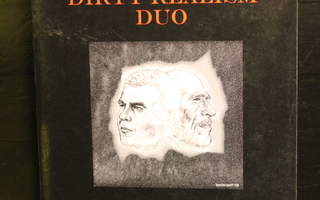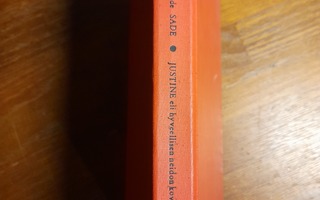Daly, Mary: Beyond God the Father (1985)
Kuvaus
Daly, Mary: Beyond God the Father – Toward a Philosophy of Women’s Liberation (1985, Beacon Press, Kunto: K3; laminoitu, muutamia lyijykynämerkintöjä)
Beyond God the Father: Towards a Philosophy of Women’s Liberation is a 1973 work of radical feminist theology by American academic Mary Daly. Beginning with a critique of Christian theology as a totem of patriarchy, Daly’s book proceeds to set out a vision of religion and religious community incorporating what Daly sees as essential feminine characteristics that have been excised or silenced by the patriarchal Church. Beyond God the Father is regarded as a foundational text of feminist theology, although it has come under critical fire: many feminist theologians regard Daly’s deconstructive attack on traditional religion as too severe, while many feminist philosophers argue that engaging with theology at all is unnecessary and unhelpful to women’s liberation. Daly, who described herself as a “radical lesbian feminist,” taught at a Jesuit college for more than thirty years. She was forced to retire in 1999 when she refused to admit male students to her advanced women’s studies classes.
Daly opens her book by defining her project and her method. While she rejects the entire structure of “theology” and “philosophy” as essentially patriarchal, she asks her reader to recognize that her work stands on the border between the two disciplines. She regards her book as theological insofar as she regards the pursuit of women’s liberation as an essentially spiritual imperative: “If the word ‘theology’ can be torn free from its usual limited and limited context, if it can be torn free from its function of legitimate patriarchy, then my book can be called an effort to create theology as well as philosophy. For my purpose is to show that the women’s revolution, insofar as it is true to its own essential dynamics, is an ontological, spiritual revolution, pointing beyond the idolatries of sexist society and sparking creative action in and toward transcendence. The becoming of women implies universal creative action in and toward transcendence. The becoming of women implies universal human becoming. It has everything to do with the search for ultimate meaning and reality, which some would call God.”
Her argument begins with a radical reading of Christian theology. She sees Christianity in its entirety—the churches and their ritual; popular ideas of Christian belief; previous Christian theology even of the most radical kind—as a powerful bulwark of patriarchal power. She argues that world-historically the rise of patriarchy coincided with the rise of monotheism, and she reads Jewish and Christian scripture to find moments in which, she argues, the abstract and ungendered divinity underlying religious belief is progressively replaced with a male God the Father and His Son.
Daly paints a satirical portrait of Christianity as a patriarchal cult, which she calls “Christolatry”: the story of a man-God ejaculating a God-man into the world. She posits that the only purpose served by envisaging God as a man is to render men gods. Daly is more sympathetic to the Gospel narrative: she sees Christ’s ministry as potentially proto-feminist in force, but she argues that this fact is insignificant compared to the extent to which the idea of God-as-man has been used to legitimize patriarchal power. In the end, Daly concludes that Christ is irrelevant, except as a failed theological experiment.
From this critique, Daly proceeds to argue for a feminist theology or—what is to her the same thing—a theology of feminism. For her outline of this theology, she draws heavily on Tillich’s ontology, while criticizing the latter’s failure to confront sexist assumptions underlying his thought.
Central to Daly’s theology is the deconstructive argument that “God” should be re-conceptualized as a verb rather than a noun: not a great Being, but the process of “being” itself. The problem with a noun-God, for Daly, is that it traps the divine within the subject-object binary. She sees this dualism as unsalvageable: it must be overcome if women are to become their own subjects rather than objects of male power.
The second pillar of Daly’s feminist theology is collectivity and community, which she sees as essentially feminine values. The “doing” of this community, the community-as-verb, constitutes worship of the divine-as-verb.
In light of these concepts, Daly offers several radical readings. She reinterprets the story of Eve’s fall as a story of becoming, a fall into being. She re-envisions the theological concept of “telos,” the Final Cause, likewise as an escape from a static succession of Beings into a continual state of change and becoming.
Daly also considers the value of these ideas to areas of radical politics beyond feminist and theology, including the environmental movement, the civil rights movement, and the pacifist movement.
Hakusanat: feminismi, feministinen tutkimus, intersektionaalinen feminismi, uskontotiede,
Myyjä
Osta heti
Lisätiedot
Maksaminen ja toimitus
Kysymykset
Kirjaudu sisään tai luo uusi tunnus.

